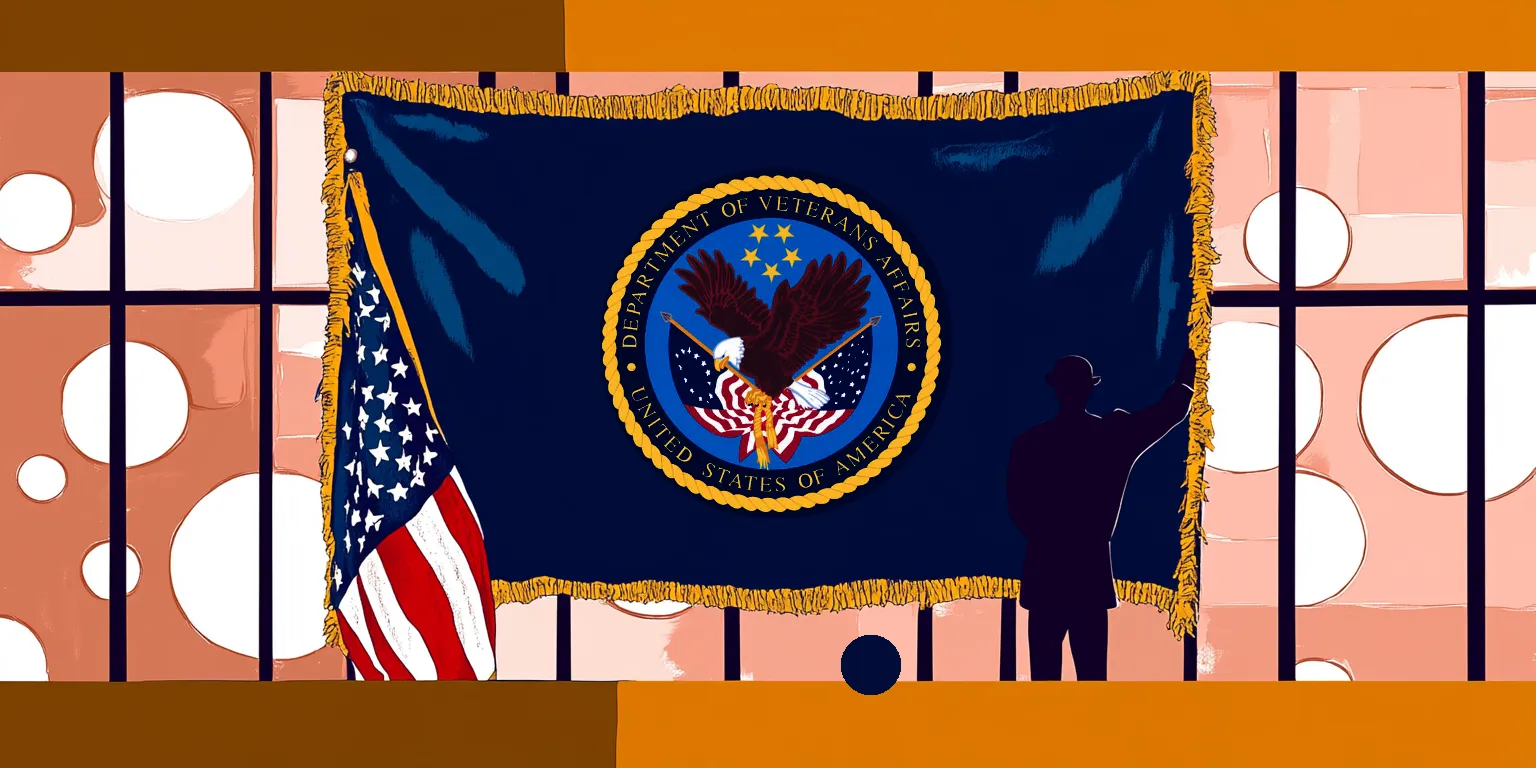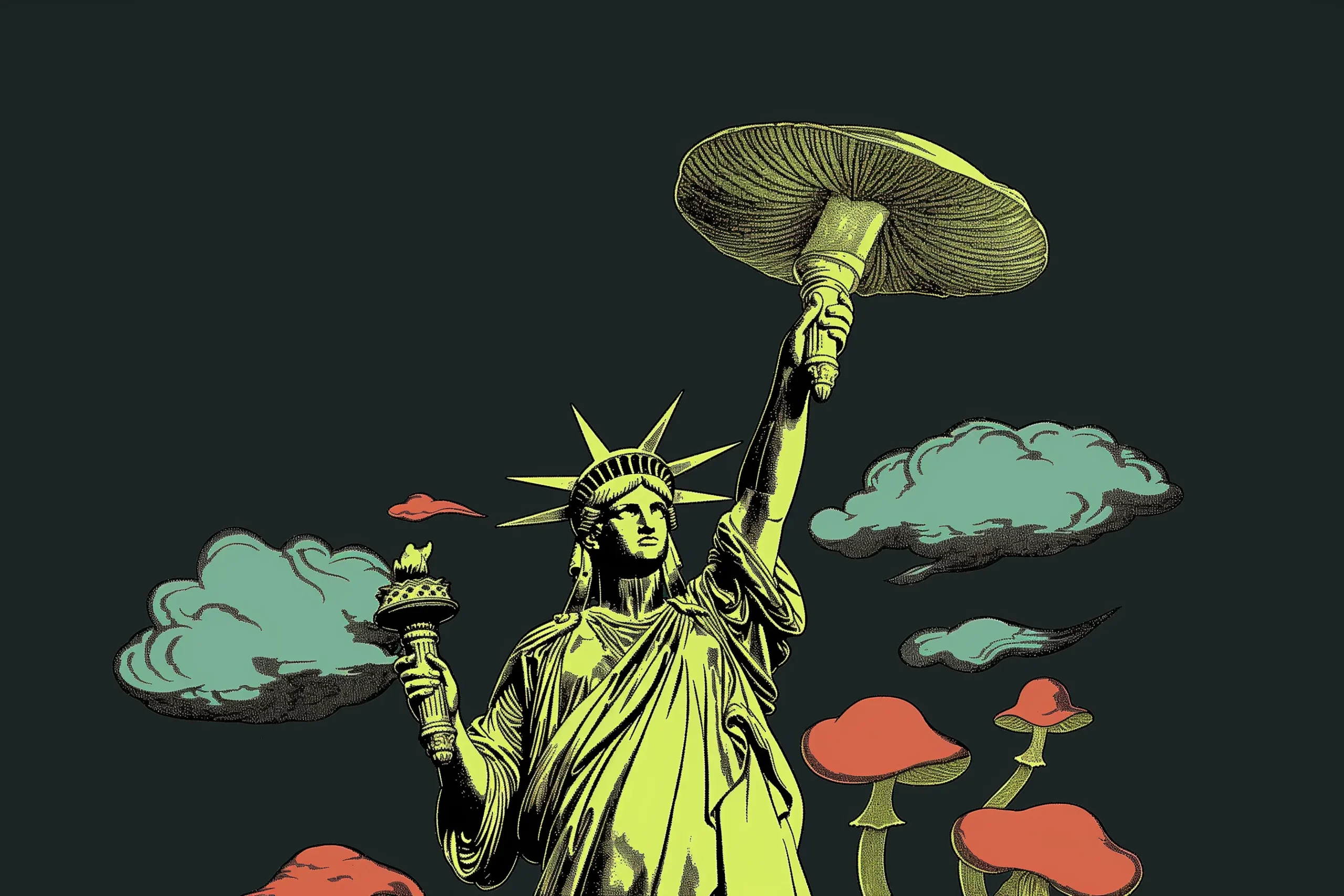This week’s Psychedelic News Roundup discusses the rapid reversal of some drug reform policies in Oregon and California, as well as the effect this may have on access to psychedelic medicine. Other news includes a new study that highlights the importance of spiritual guidance during a psychedelic experience, a fresh psilocybin study aimed at treating alcohol use disorder, and more.
Revisiting Drug Criminalization in Response to the Fentanyl Epidemic on the West Coast
As detailed by ABC News, in a notable pivot from their historically progressive stance on drug policy, California and Oregon are revisiting criminalization tactics in the face of an escalating fentanyl crisis that has exacerbated issues of homelessness and public drug use. This shift towards punitive measures for drug-related offenses represents a significant departure from the criminal justice reforms both states have implemented in recent years, aimed at reducing prison populations and treating drug addiction as a public health issue rather than a criminal one.

Critics of this reversal argue that such measures will not only fail to address the underlying causes of addiction but also risk overwhelming the criminal justice system, leading to increased overdose deaths and deepening poverty among the most vulnerable populations.
The resurgence of a drug war mentality in regions that once led the charge for reform comes amid growing concerns over the visible impact of drug abuse on community safety and quality of life. Oregon Governor Tina Kotek’s declaration of a 90-day emergency in downtown Portland and the subsequent legislative action to roll back decriminalization efforts highlight the situation’s urgency.
Keep Up with Uncensored Psychedelic Trends
Join our newsletter at Psychedelics Uncensored.
We respect and protect your privacy. By subscribing your info will be subject to our privacy policy . Unsubscribe easily at any time
Similarly, San Francisco’s Tenderloin district, a focal point of the opioid epidemic, has seen a disturbing rise in overdose fatalities, prompting public demand for decisive action. These legislative changes, driven by a desire to curb the public consumption of dangerous drugs, have reignited debates over the efficacy of criminalization as a strategy to combat drug abuse and addiction.
However, lawmakers in Oregon have pointed out that these new punitive measures will not affect the state’s nascent psilocybin industry. Instead, they offer that the potential changes simply reinforce the state-run psilocybin program’s focus on supervised adult use. Despite this, some advocates have taken issue with the law’s wording, which they feel would severely limit the public access to psilocybin.
The debate is further complicated by the national narrative, often amplified by conservative media and politicians, which portrays urban centers as beleaguered by crime and despair, despite federal data indicating declines in violent and property crimes. This narrative has contributed to a climate of fear and frustration among the public, leading to calls for a return to more aggressive drug enforcement policies.
However, front-line service providers and drug reform advocates caution against a simplistic return to failed war on drugs policies, emphasizing the need for a nuanced approach that balances public safety with compassion and effective addiction treatment.
Keep Up with Psychedelic Trends
Get uncensored psychedelic news, events, and updates. Join Psychedelics Uncensored!
We respect and protect your privacy. By subscribing your info will be subject to our privacy policy . Unsubscribe easily at any time
The challenges facing California and Oregon underscore the complex nature of the drug crisis and the limitations of a purely punitive response. As these states navigate the contentious terrain of drug policy, the outcomes of their legislative shifts will be closely scrutinized for lessons that might inform broader national strategies for dealing with drug addiction and its societal impacts.
The evolving situation highlights the critical need for new, evidence-based approaches that prioritize health and recovery while safeguarding community well-being, suggesting that the war on drugs, in its traditional form, may be ill-suited to address the nuanced realities of the fentanyl epidemic and its far-reaching consequences.(1)
Spiritual Health Practitioners May Be a Critical Part of Psychedelic Therapy

Originally run by High Times, recent research from Emory University highlights the significant contributions of spiritual health practitioners (SHPs) in psychedelic-assisted therapy, a field used to treat complex conditions such as treatment-resistant depression, PTSD, and substance use disorders.
The study emphasizes the distinct expertise SHPs bring to the therapeutic landscape, especially in sessions involving psychedelics like psilocybin, ketamine, LSD, and MDMA. Traditionally linked to religious care, the scope of SHPs has broadened to include spiritual support for individuals across all or no religious backgrounds, necessitating comprehensive training to meet the diverse needs of patients.
The investigation into the integration of spiritual care within the stages of psychedelic-assisted therapy—preparation, dosing, and integration—reveals that SHPs offer invaluable perspectives that enhance the therapeutic process. Interviews with 15 SHPs who have participated in regulated psychedelic therapies uncovered seven themes that underscore their role.
These themes range from their ability to navigate spiritual content and power dynamics, to their expertise in non-ordinary states of consciousness and providing a holistic counterpoint to the predominantly biomedical approach. Such insights demonstrate the SHPs’ unique and essential contributions to the therapy process, complementing the skills of clinicians from various specialties.
The study advocates for the inclusion of SHPs in the teams delivering psychedelic-assisted therapy, pointing out the necessity of their specialized training in addressing power, justice, equity, and inclusion. SHPs’ deep understanding of spiritual, existential, and theological concerns offers a non-judgmental space for patients, enhancing the therapeutic experience.
Additionally, the potential for SHPs to connect with Indigenous spiritual practitioners may enrich clinical practices by honoring traditional relationships with plant medicines. Despite its qualitative approach limiting the ability to draw causal connections, the research calls for the acknowledgment of SHPs’ roles in training and certification programs, especially as the field moves closer to FDA approval of psychedelic treatments. This recognition is crucial for developing comprehensive care standards that encompass spiritual, existential, and religious considerations in psychedelic-assisted therapy.(2)
University of Calgary Launches New Study on Psilocybin for Alcohol Use Disorder

Calgary CTV News examines a new study from the University of Calgary (through its Hotchkiss Brain Institute) to explore the effectiveness of psilocybin (the psychoactive compound found in magic mushrooms) as a potential treatment for alcohol use disorder (AUD). The research aims to enroll 128 participants with AUD to undergo therapy sessions before and after receiving psilocybin treatment. The study seeks to determine whether the combination of psilocybin and psychotherapy can offer a more effective treatment approach for individuals struggling with AUD, a condition that traditional treatments often fail to adequately address.
Dr. Leah Mayo, the principal investigator of the trial, emphasizes the potential of psilocybin to create a “therapeutic window of opportunity,” making the brain more amenable to breaking negative behavior patterns associated with alcohol abuse. Unlike conventional medications that require daily intake, psilocybin presents a possibility for a short, intense treatment period that could lead to long-term behavioral change. The study will administer psilocybin in conjunction with psychotherapy sessions over five weeks, aiming to evoke significant habit changes and reduce or eliminate alcohol abuse.
The trial’s approach, known as “motivational enhancement therapy,” focuses on fostering long-term, positive habits by helping participants connect with their motivations for change. This method contrasts with traditional, confrontational addiction treatments, offering a more introspective and self-led path to recovery. Personal accounts from individuals like John Greenwood and Jason Quilley, who have battled AUD, underscore the importance of therapy, recovery, and community support in overcoming addiction.
While opinions on the use of psilocybin in recovery vary, the study represents a promising avenue for those seeking alternative treatments. Supported by the Canadian Institutes in Health Research and Filament Health, this research could significantly impact the future of AUD treatment, offering new hope to those affected by this challenging disorder.(3)
Microdosing LSD: A Neuroscientific Perspective on Expanding Consciousness

Recent neuroscientific research via Psychology Today, spearheaded by a team at the University of Chicago, has shed light on the effects of microdosing LSD.
The study, which marks a significant stride in understanding low doses of psychedelics, discovered that even non-hallucinogenic doses of LSD could increase the complexity or entropy of brain signals, suggesting a mechanism behind its therapeutic effects. This research aligns with the entropic brain hypothesis, which posits that increased neural complexity during psychedelic therapy can help patients break free from rigid, maladaptive patterns, potentially offering a new avenue for treating various psychiatric conditions.
This new study utilized electroencephalography (EEG) to measure brain activity in participants administered low doses of LSD, alongside comparisons with moderate to high doses of THC and methamphetamine. Contrary to expectations, only LSD showed a dose-dependent increase in neural complexity, without inducing the altered states typically associated with higher doses.
Participants reported feelings of elation and anxiety, but these did not directly correlate with the observed increase in complexity. Interestingly, the study also noted a reduction in low-frequency brainwave oscillations, which correlated with increased feelings of elation, hinting at the nuanced effects of LSD on consciousness and mood.
The implications of this research extend beyond the scientific understanding of psychedelics; they touch on the therapeutic potential of LSD microdosing. While the study emphasizes the need for caution, especially regarding the risks of repeated psychedelic use, it also opens the door to further exploration of how microdosing could support mental health treatments.
The findings suggest that the increased neural complexity observed might act as a “widening lens,” enriching one’s perception and world experience. As the field of psychedelic medicine continues to evolve, this study contributes valuable insights into dose appropriateness and the potential benefits of psychedelics in enhancing mental well-being, highlighting the importance of further research to guide safe and effective therapeutic practices.(4)
Numinus Wellness Seeks to Pioneer Group MDMA Therapy Through Clinical Trial=

Numinus Wellness Inc. has taken a significant step forward by submitting a new Clinical Trial Application to Health Canada. This innovative new trial aims to explore the feasibility of MDMA-assisted psychotherapy in a group setting, a novel approach that could help optimize the treatment landscape for serious mental health conditions.
The study is designed to determine the ideal number of therapists needed to safely administer the therapy while providing trainee practitioners with an invaluable opportunity to develop core competencies and legally experience MDMA, potentially setting new standards for therapeutic delivery.
Payton Nyquvest, the Founder and CEO of Numinus, emphasized the importance of advancing practitioners’ understanding of MDMA’s clinical application, especially as research continues to validate its efficacy in treating conditions like PTSD. The trial is not just about exploring group therapy dynamics; it’s about laying the groundwork for best practices in MDMA-assisted treatments. With the anticipation of MDMA-assisted therapy receiving regulatory approval, there’s a growing need to prepare clinics and practitioners to offer this new treatment effectively.
The involvement of Rick Doblin, Ph.D., a prominent figure in psychedelic research and a strategic advisor to Numinus, underscores the trial’s potential to significantly improve patient outcomes by equipping practitioners with essential knowledge and experience.
As the first study of its kind, titled “Phase 1 Exploration of Feasibility and Optimal Therapist Numbers in Group Model MDMA-Assisted Psychotherapy,” it promises to contribute valuable insights into the safety, delivery, and training aspects of MDMA therapy. Details about participating in the trial will be available on the Numinus website.(5)
Sources

1. Progressive California and Oregon are reviving the war on drugs amid a fentanyl crisis. (2024, March 20). NBC News. https://www.nbcnews.com/news/us-news/california-oregon-reviving-war-drugs-fentanyl-crisis-rcna142387
2. Williams, K. (2024, March 21). Study Underscores Value of Spiritual Health Practitioners in Psychedelic-Assisted Therapies. High Times. https://hightimes.com/study/study-underscores-value-of-spiritual-health-practitioners-in-psychedelic-assisted-therapies/
3. Effectiveness of psychedelics on alcohol use disorder the focus of U of C study. (2024, March 20). Calgary. https://calgary.ctvnews.ca/effectiveness-of-psychedelics-on-alcohol-use-disorder-the-focus-of-u-of-c-study-1.6814874
4. How Even a Microdose of LSD Might Expand Consciousness | Psychology Today. (n.d.). Www.psychologytoday.com. Retrieved March 21, 2024, from https://www.psychologytoday.com/us/blog/psychedelic-neuroscience/202403/how-a-microdose-of-lsd-might-expand-consciousness
5. Numinus Wellness Submits Clinical Trial Application. (n.d.). BioSpace. Retrieved March 21, 2024, from https://www.biospace.com/article/releases/numinus-wellness-submits-clinical-trial-application/
This material is not intended as a replacement or substitute for any legal or medical advice. Always consult a medical professional about your health needs. Psychedelics are widely illegal in the United States, and readers should always be informed about local, state, and federal regulations regarding psychedelics or other drugs.

 David Connell
David Connell





 Ross Dillon
Ross Dillon 
